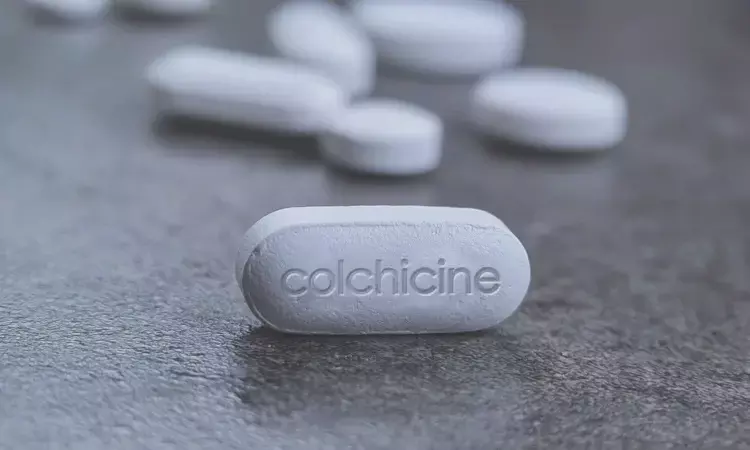- Home
- Medical news & Guidelines
- Anesthesiology
- Cardiology and CTVS
- Critical Care
- Dentistry
- Dermatology
- Diabetes and Endocrinology
- ENT
- Gastroenterology
- Medicine
- Nephrology
- Neurology
- Obstretics-Gynaecology
- Oncology
- Ophthalmology
- Orthopaedics
- Pediatrics-Neonatology
- Psychiatry
- Pulmonology
- Radiology
- Surgery
- Urology
- Laboratory Medicine
- Diet
- Nursing
- Paramedical
- Physiotherapy
- Health news
- Fact Check
- Bone Health Fact Check
- Brain Health Fact Check
- Cancer Related Fact Check
- Child Care Fact Check
- Dental and oral health fact check
- Diabetes and metabolic health fact check
- Diet and Nutrition Fact Check
- Eye and ENT Care Fact Check
- Fitness fact check
- Gut health fact check
- Heart health fact check
- Kidney health fact check
- Medical education fact check
- Men's health fact check
- Respiratory fact check
- Skin and hair care fact check
- Vaccine and Immunization fact check
- Women's health fact check
- AYUSH
- State News
- Andaman and Nicobar Islands
- Andhra Pradesh
- Arunachal Pradesh
- Assam
- Bihar
- Chandigarh
- Chattisgarh
- Dadra and Nagar Haveli
- Daman and Diu
- Delhi
- Goa
- Gujarat
- Haryana
- Himachal Pradesh
- Jammu & Kashmir
- Jharkhand
- Karnataka
- Kerala
- Ladakh
- Lakshadweep
- Madhya Pradesh
- Maharashtra
- Manipur
- Meghalaya
- Mizoram
- Nagaland
- Odisha
- Puducherry
- Punjab
- Rajasthan
- Sikkim
- Tamil Nadu
- Telangana
- Tripura
- Uttar Pradesh
- Uttrakhand
- West Bengal
- Medical Education
- Industry
Colchicine may reduce myocardial injury after non-CABG cardiac surgery

China: Low-dose colchicine benefits myocardial protection in patients undergoing non-CABG (non-coronary artery bypass grafting) surgery, findings from a randomized controlled trial have shown.
Between the two groups (colchicine or placebo groups), the researchers did not observe any significant difference in other adverse outcomes, although colchicine increased diarrhoea rates. The findings, published in the journal Critical Care, "needs confirmation in larger sample study to examine clinical endpoints, suggests colchicine's potential role in alleviating postoperative myocardial injury," the researchers wrote.
Recent high-quality trials have revealed that colchicine's anti-inflammatory effects reduce the risk of cardiovascular events in patients with chronic coronary disease and post-myocardial infarction. There is no clarity on the colchicine's impact on patients undergoing non-CABG with cardiopulmonary bypass. Therefore, Tuo Pan from The Affiliated Hospital of Nanjing University Medical School in Nanjing, China, and colleagues aimed to assess colchicine's effect on myocardial protection in patients undergoing non-CABG cardiac surgery.
Patients were randomly allocated to colchicine or placebo groups initiated 72 h before scheduled cardiac surgery and for five days after (0.5 mg daily). Fifty-nine were assigned to the colchicine group and 62 to the placebo group. Cardiac troponin T (cTnT) level at postoperative 48 h was determined (primary outcome). The secondary results were creatine kinase-MB (CK-MB) and troponin I (cTnI), adverse events (stroke, 30-day mortality, IABP use, ECMO, etc.), and inflammatory biomarkers (interleukin-6 and procalcitonin, etc.).
The study led to the following findings:
· A total of 132 patients underwent non-CABG cardiac surgery, 11were excluded due to long aortic cross-clamp time > 2 h (n = 5) and diarrhoea (n = 6).
· Compared with the placebo group, cTnT, CK-MB, cardiac troponin I, and interleukin-6 were significantly reduced in the colchicine group at postoperative 48 h.
· For safety evaluation, the colchicine (n = 65) significantly decreased post-pericardiotomy syndrome (3.08% vs 17.7%) and increased the rate of diarrhoea (9.23% vs 0) compared with the placebo group (n = 62).
· The two groups observed no significant difference in other adverse events.
"A short perioperative course of low-dose colchicine was effective in attenuating the postoperative biomarkers of inflammation and myocardial injury and decreased the postoperative syndrome compared with the placebo," the researchers noted.
The results indicate that colchicine exerts a beneficial effect on myocardial protection in patients undergoing non-CABG cardiac surgery.
"Our finding, which needs confirmation in a larger sample study to examine clinical endpoints, suggests colchicine's potential role in the alleviation of postoperative myocardial injury," they conclude.
Reference:
Pan, T., Jiang, CY., Zhang, H. et al. The low-dose colchicine in patients after non-CABG cardiac surgery: a randomized controlled trial. Crit Care 27, 49 (2023). https://doi.org/10.1186/s13054-023-04341-9
Dr Kamal Kant Kohli-MBBS, DTCD- a chest specialist with more than 30 years of practice and a flair for writing clinical articles, Dr Kamal Kant Kohli joined Medical Dialogues as a Chief Editor of Medical News. Besides writing articles, as an editor, he proofreads and verifies all the medical content published on Medical Dialogues including those coming from journals, studies,medical conferences,guidelines etc. Email: drkohli@medicaldialogues.in. Contact no. 011-43720751


